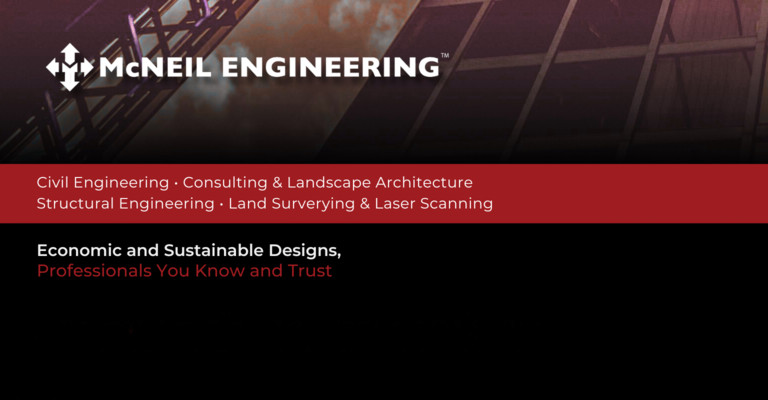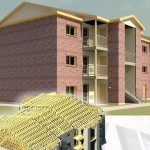 The field of transportation engineering is undergoing a profound transformation, driven by technological advancements, societal shifts, and environmental imperatives. In this exploration, we delve into the dynamic landscape of transportation engineering, uncovering emerging trends and innovative solutions that promise to shape the future of mobility.
The field of transportation engineering is undergoing a profound transformation, driven by technological advancements, societal shifts, and environmental imperatives. In this exploration, we delve into the dynamic landscape of transportation engineering, uncovering emerging trends and innovative solutions that promise to shape the future of mobility.
- Smart transportation systems: Smart transportation systems represent a paradigm shift in urban mobility, harnessing the power of data and connectivity to optimize transportation networks. By leveraging real-time information from sensors, cameras, and mobile devices, these systems enable efficient traffic management, enhance safety, and improve overall transportation efficiency. From adaptive traffic signals to dynamic routing algorithms, smart transportation systems empower transportation engineers to address congestion, reduce travel times, and create more sustainable and livable cities.
- Electric and autonomous vehicles: The rise of electric vehicles (EVs) and autonomous vehicles (AVs) heralds a new era in transportation, characterized by cleaner, safer, and more efficient mobility solutions. EVs offer a sustainable alternative to traditional gasoline-powered vehicles, reducing carbon emissions and dependence on fossil fuels. Meanwhile, AVs have the potential to revolutionize transportation by eliminating the need for human drivers, ushering in an era of safer and more accessible mobility. Transportation engineers are at the forefront of designing the infrastructure and regulatory frameworks necessary to support the widespread adoption of EVs and AVs, ensuring their seamless integration into existing transportation systems.
- Sustainable infrastructure: Sustainable infrastructure is paramount in addressing the environmental challenges posed by urbanization and population growth. Transportation engineers play a crucial role in designing and implementing sustainable transportation infrastructure, incorporating green technologies, renewable energy sources, and eco-friendly materials. From green streets and bike lanes to energy-efficient public transit systems, sustainable infrastructure aims to reduce carbon emissions, minimize environmental impact, and enhance the quality of life for residents. By embracing sustainable design principles, transportation engineers can create resilient and environmentally responsible transportation networks that meet the needs of present and future generations.
- High-speed rail and hyperloop: High-speed rail and Hyperloop systems represent the future of long-distance transportation, offering fast, efficient, and environmentally friendly alternatives to air and road travel. These innovative transportation technologies have the potential to revolutionize intercity and interstate travel, connecting urban centers and regions like never before. Transportation engineers are instrumental in designing and implementing high-speed rail and Hyperloop networks, addressing technical, logistical, and regulatory challenges to make these ambitious projects a reality. By facilitating seamless connectivity and reducing travel times, high-speed rail and Hyperloop systems can spur economic growth, enhance mobility, and promote sustainable development.
- Data-driven decision-making: Advancements in data analytics and machine learning have transformed transportation planning and management, enabling transportation engineers to make informed, data-driven decisions. By analyzing vast amounts of data from sensors, GPS devices, and other sources, engineers can optimize transportation networks, predict traffic patterns, and identify areas for improvement. Advanced modeling and simulation tools allow engineers to test different scenarios and evaluate the potential impact of proposed transportation projects, ensuring the efficient use of resources and minimizing disruptions to existing infrastructure.
- Public-private partnerships: Public-private partnerships (PPPs) have emerged as a viable financing model for transportation infrastructure projects, leveraging the resources and expertise of both public and private sector entities. These partnerships enable transportation engineers to accelerate project delivery, reduce costs, and mitigate financial risks, ultimately enhancing the efficiency and effectiveness of transportation investments. By fostering collaboration and innovation, PPPs can facilitate the development of transformative transportation projects that benefit communities and stimulate economic growth. From toll roads and bridges to transit-oriented developments, PPPs offer a flexible and scalable approach to financing and delivering transportation infrastructure.
- Resilient infrastructure: In an era marked by increasing frequency and severity of natural disasters, resilience has become a critical consideration in transportation engineering. Engineers must design infrastructure that can withstand the impacts of extreme weather events, such as hurricanes, floods, and wildfires while minimizing disruptions to transportation networks. By integrating resilient design principles, such as elevated roadways, flood barriers, and redundant systems, engineers can enhance the resilience of transportation infrastructure and ensure continuity of service in the face of adversity.
- Accessibility and equity: Transportation engineers are increasingly recognizing the importance of ensuring that transportation infrastructure and services are accessible and equitable for all members of society. This includes addressing barriers to mobility faced by disadvantaged communities, improving accessibility for people with disabilities, and promoting social equity in transportation planning and investment decisions.
As we embark on this journey into the future of transportation engineering, McNeil Engineering stands ready to lead the way. With our expertise in civil engineering, structural engineering, land surveying, and consulting services, we are committed to delivering innovative solutions that enhance mobility, sustainability, and quality of life for communities worldwide. Together, let us navigate the complexities of tomorrow’s transportation challenges and pave the way for a brighter, more connected future.
Are you ready to shape the future of transportation engineering? Partner with McNeil Engineering, your trusted ally in comprehensive design services for transportation infrastructure. Visit our website to learn more about our expertise and how we can help you navigate the road ahead.








